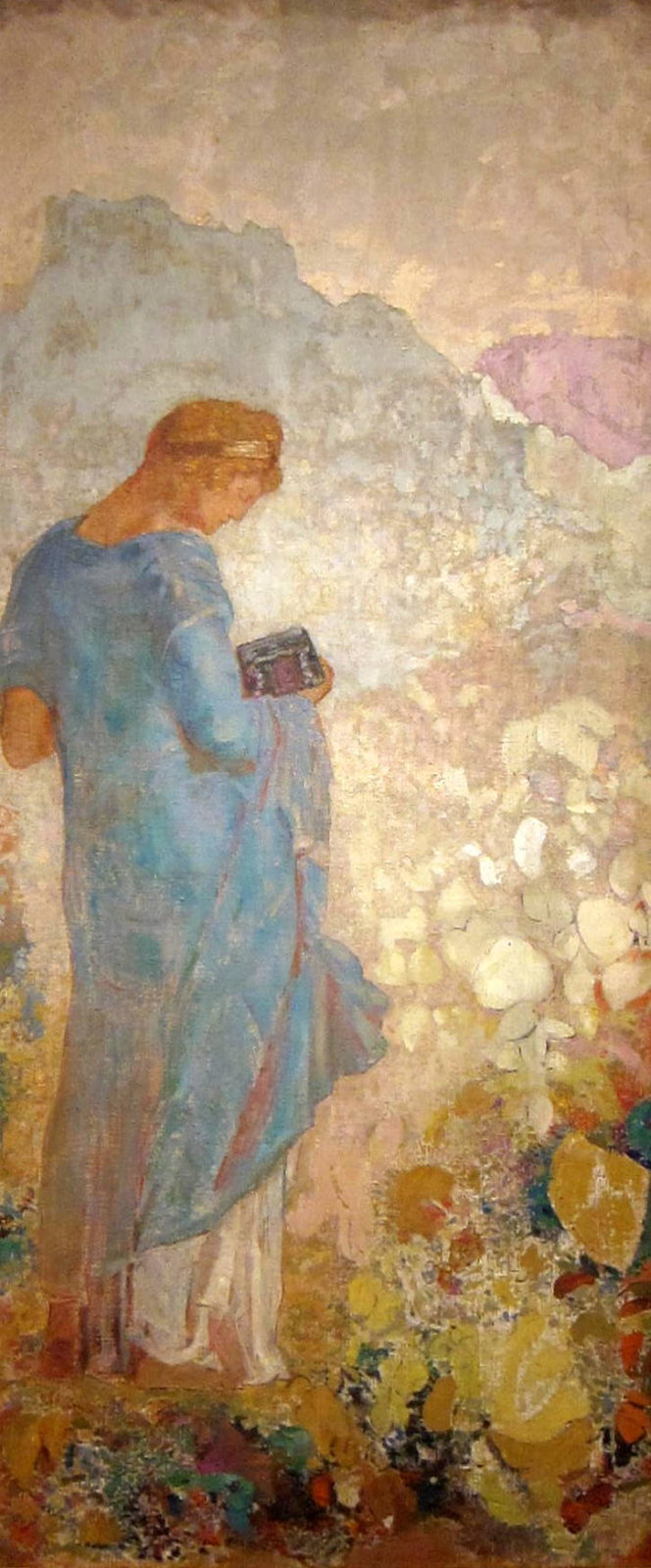In Greek mythology Pandora was the first mortal woman, similar to the Judeo-Christian Eve. She was created by the god Zeus in order to bring chaos and setbacks to humanity, which had just received the god-like technology of fire from Prometheus.
Pandora was crafted by Hephaestus from earth and water, and given gifts by all the gods including a silver gown from Athena, a human voice from Hermes, and a curious but devious nature.
Under the instruction of Zeus, her gifts and qualities were ultimately meant to wreak havoc on humanity. She was given a sealed jar filled with destructive forces such as plagues, sickness, death, and other evils.
Her curiosity lead her to open the jar and unleash all the evils into humanity, thus bringing revenge from the gods for the theft of their sacred fire and ultimately ending the Golden Age.
In Hesiod’s Theogony, the source for the story of Pandora, it says that after all the evils had left Pandora’s jar, one small force also escaped into the world, hope. In the Golden Age where there was no problems, no wars, no grief, no death, there was no need for hope. As humanity was left to deal with these new sufferings they also could experience hope.
The unfolding of creation has to be facilitated by a descent into the material world, so that the spiritual essence can gain knowledge.
Both the biblical Eve and Pandora represent the force within each human that can choose the way of continued materiality or a return to the divine origins.

